#classicsblr
Text
🌊Sad Soggy Boat Men Tournament🌊
Round 4A (semifinals), match 1
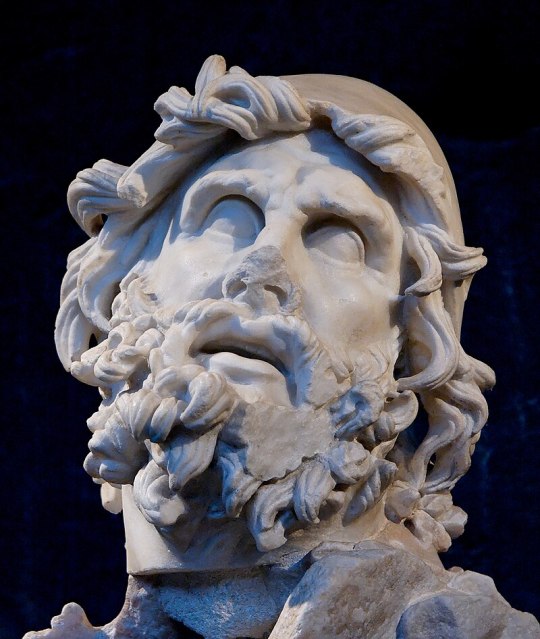
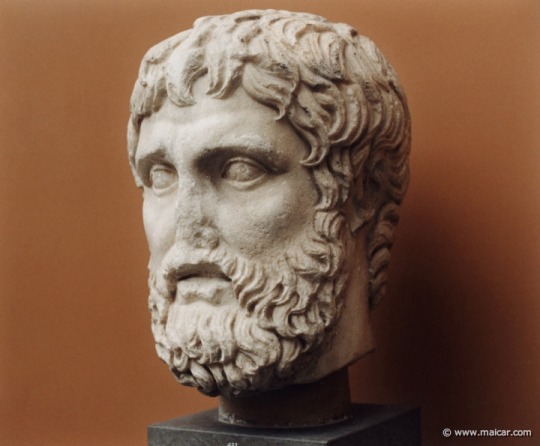
Propaganda and image sources under the cut (warning for possible spoilers):
propaganda for Odysseus:


image from Wikipedia
propaganda for Aeneas:

image from here
1K notes
·
View notes
Text
(Ranting about a comment I saw on TikTok.)
I genuinely need people to stop blaming ancient Greek religion/the gods for ancient Greek societal conventions like infanticide, slavery, and misogyny.
Exposed infants were protected by Kourotrophos gods!
Versions of the gods exist who were liberators of enslaved persons!
Women undeniably found the most freedom in the religious sphere!
For all of ancient Greece's sociocultural conservatism, the gods virtually demanded that worshippers subvert customs. In the words of my professor, "The Greek gods are a lot more progressive than you'd expect from the conservative ancient Greeks."
594 notes
·
View notes
Text
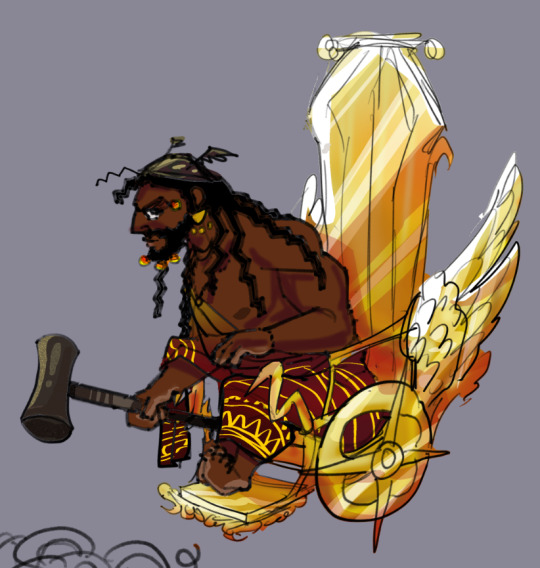
🏺🔥
#helpol#hellenic polytheist#hellenic polytheism#hellenic pagan#hellenic paganism#Hephaestus#Hephaistos#Hephaestus worship#Hephaestus devotee#Hephaestus devotion#greek mythology#greek myth art#classicsblr#my art#digital art
443 notes
·
View notes
Text
Battle of the Captains
Round 3 Part 7 Poll 2


Propaganda
Flint waged war on all of civilization in the name of his gay lover and expanded to racial equality and he almost fucking won. They (civilization) took everything from him. And then they call HIM the MONSTER? The moment he signs that pardon, the moment he ASKS for one, he proclaims to the world they were right. This ends when he grants them HIS forgiveness, not the other way around.
what is a captain tournament without ahab tbh? moby dick (whale) bit his leg off in true dick fashion and ahab ditches all efforts of actually whaling to kill him for it. (well not ALL efforts but like. quite a few.) the pettiest bitch ever. had a new leg made out of whale bone SPECIFICALLY. has a hole in the deck where he just. pivots from. loser. has gay tension with his first mate starbuck also i don't know if that matters
(bear in mind i haven't actually finished the book yet ^^ so this may be slightly inaccurate)
#tournament polls#battle of the captains#round 3#captain james flint#james flint#black sails#ahab#captain ahab#moby dick#herman melville#bookblr#classicsblr
118 notes
·
View notes
Text
Character, book, and author names under the cut
Geraldine- Christabel by Samuel Coleridge
Giovanni- Giovanni's room by James Baldwin
Baz Pitch- Carry On Series by Rainbow Rowell
Patroclus- Song of Achilles by Madeline Miller
#Geraldine#Christabel#Classicsblr#Samuel Coleridge#Giovanni#Giovanni's room#James Baldwin#Baz Pitch#Carry On Series#Carry On#Wayward Son#Anyway the Wind Blows#Rainbow Rowell#Patroclus#Song of Achilles#TSOA#Madeline Miller#polls#lgbt books#queer book character tournament 2.0
56 notes
·
View notes
Text
Botanic Tournament : Main Bracket !
Round 4 Poll III

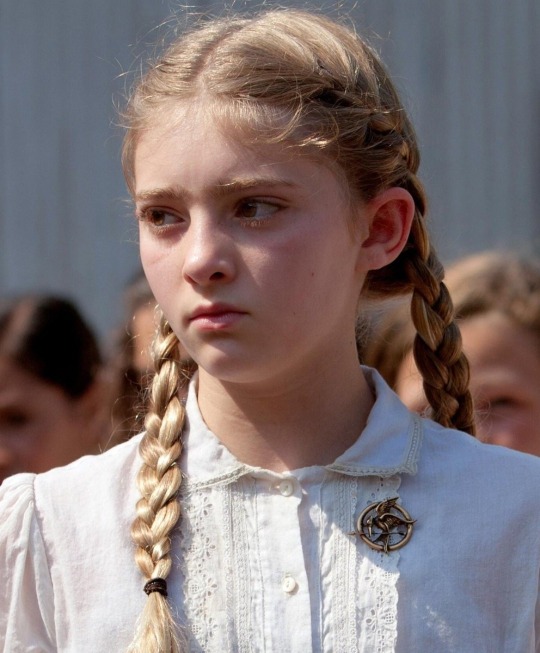


(Hyacinths and primrose)
#botanic tournament#tournament polls#round 4#hyacinthus#greek myths#greek mythology#mythology#myths and legends#myths#classicsblr#primrose everdeen#prim everdeen#thg prim#the hunger games trilogy#the hunger games#the hunger games books#the hunger games movie#thg movies#movieblr#thg series#thg books#thg#hunger games#bookblr
57 notes
·
View notes
Text
everyone talking about the percy jckson finale, but i want to know your thoughts on the new alexander netflix series
#alexander#the making of a god#netflix#personal#percy jackson#ancient history#ancient greece#classics#classics studyblr#classicsblr#classics major#dark academia#light academia
23 notes
·
View notes
Text
I own five separate English translations of the Iliad, yet my Ancient Greek prof next semester managed to assign one I don't have
#i did not need to buy Another edition#and i need a different greek one than i have#its like shes spiting me#edward caws#tagamemnon#classicsblr
42 notes
·
View notes
Text

achilles and patroclus in a red-figure vessel style. this was super fun to draw :)
#achilles#patroclus#patrochilles#classicsblr#tagamemnon#ancient greece#greek mythology#the iliad#my art
106 notes
·
View notes
Text
We just finished learning about religion during the Roman empire in one of my classes, and it's genuinely so fascinating. One of the most interesting parts was how they would do a sort of ritual during wars where they'd call the gods of their enemies over to their side so they would win. Also, how during prayers they would sometimes be like "to the gods I mentioned and all those I have missed or do not know" like, how telling is that on how Roman religion worked?
#ancient rome#ancient history#roman empire#religions of ancient rome#classicsblr#university#sorry this is a ramble lol
20 notes
·
View notes
Text
Blood & Brothers: A Close Reading and Analysis of Dante Émile's "Dioscuri"
Blood and Brothers: A Close Reading of “Dioscuri” by @orpheuslament. By Sophie E. Eikli. Available on Substack.
The world is formed anew, as is our vocabulary. Tumblr poet Dante Émile begins his piece with a title, Dioscuri, which holds no meaning as can be divined through English language save for a single title given to a unique dynamic. The word refers specifically to that dynamic of those poorly fated twins from Greek mythology; Castor and Pollux. They are the masculine in the divine-and-mortal set of twins, having been born alongside Helen and Clytemnestra out of the nonconsensual union of Zeus and Leda. The word itself comes from the Greek ‘Dioskouroi’ meaning ‘Sons of Zeus’. The word may also whisper of similarity to the English ‘obscure’, something which is definitely present in the piece by Émile.
The piece begins in conversation with a seemingly invisible speaker. “Your blood is my blood is your blood is my blood,” uttered by an unknown voice to an unknown recipient. This sentence is repeated twice more in the poem, at the middle and at the closure. The pronoun ‘your’, is also repeated steadily over the course of the piece, while “I” is never named- save for the invisible, yet heady I present in the repetition of “my” in the line which has already been named. This proves the existence of a first-person speaker kept tantalisingly out of the reader’s grip, without revealing its identity. Is it Émile commenting through his own work, projecting to a specific person in an act of poetic espionage? Is it Pollux to his mortal and less radiant twin? Is it Castor to the son born as what he is not; glory and divinity? My suspicion is that the truth lies somewhere between the latter options, and that the unsureness is deliberate. Castor and Pollux’s blood is the same, not just genetically but in reality. The line “your mother never looks you in the eye” could indicate that it is Castor speaking to Pollux, but this is something that cannot, and should not be, confirmed. Although fraternal, they both carry the traits and evidence of a fated conception.
Aside from its title, the poem walks a fine line between pretentious and relatable as the meat of its text keeps it grounded in modernity. There are no heady Greek words, nor are there Latin ones. And yet it brims over with the past. Émile begins by thrusting the name of Castor into the present in an act of bait-and-switch, placing the two of them in the setting of a motel bathroom, and yet the present is scarcely mentioned again. The poem laps back through time, going from a “motel bathroom” to the reflection of their “once [having been] a light to sailors” until the devastating final blow that delivers Castor and Pollux to Hades. The piece exists within a context of Greek antiquity. The present is not gone, but it barely registers against the weight of the past.
To all who grazed the Tumblr poetry sphere of the mid-to-late 2010’s, tell me if this sounds familiar: Dionysus in the present, owning a bar. Aphrodite, a stripper. Zeus, a marine or some other authority.
Those who had a Tumblr account in the mid-2010’s may be aware of the pervasiveness of Classical Greece within the poetics of that time. Many of them are gone now, their blogs reduced to half-memories and deactivated urls. While some of them, such as New Zealand’s Darshana Suresh, went on to publish a book, I have no idea if any of them continued to write. Because of time, and disappearance, and ghosts, I cannot find the exact poems to reference. Therefore, I can only ask for your belief in the fact that one thing was almost always present in a Tumblr poet’s portfolio: the Ancient Greeks in the present, haunted by a lack of belief. This is not a denigration of that poetry in the slightest; as a teenager I found myself uniquely represented in the ambitious poetry of fellow teenaged and young adult poets who often suffered with mental health problems of their own. It was also a heavily queer environment, in which there was no question at all regarding the relationship between Akilles and Patroklus. There existed a genuine artistry and love for the source material that marked it as an artistically unique subsection of poetry.
Another uniting force for the Tumblr poet community was its metaphorical patron saint; Richard Siken. An absolute crescendo of his time, Siken released the collection Crush when he was barely 19 in 2005. Even today his work entertains a sense of immortality, often being used in so-called web weaves (e.g; “Sorry / about the blood in your mouth. I wish it was mine.”(Little Beast)). Even I have a not-so-hypothetical desire for a Siken tattoo on my left arm. His work is manic, bordering on surrealistic as he blends time and space, but more than anything it is intensely physical. There are many, many times in Crush where the word ‘blood’ is used. Hearts are swallowed, cows fall from the sky like rain, houses and people are burned at regular intervals. There is also a very heavy presence of second person in his poetry.
In several ways, Dioscuri feels like a testament and subversion of these things. There is the heavy presence of the past within Émile’s poem, but it is manipulated in a way that contrasts those poems from 2015. Unlike the pieces of which I think, which could alternately place Dionysus at a bar or Ikaros in a First World War fighter, Émile begins in the present and pushes backwards into the past. The thick love of these brothers is constant and unbearable, with Pollux eventually resolving to pull his mortal brother with him into the stars. The language, too, leans progressively more into the Antique with epithets such as “God-sent white bird” – which is interestingly used to describe the “dove” that “you once buried”, rather than another white bird which is their father in the myth of Leda. – being paired with reflections on the soul dualism (“A soul splits in two, / that which has always been yours to share”) which Plato credits to Zeus in his Symposium. While a line near the beginning of the poem asks “Who in Hell knows who speaks first”, the ending describes one waking “Down in Hades.”
And yet the present does exist, reaching through Pollux’s grief for his brother killed in Troy. “I’m not reaching Heaven if it’s not with my brother,” he says to his “old man”, Zeus. While it could be a meditation on the skies to which Castor and Pollux eventually become stars, Heaven’s capitalisation leads one to wonder whether it is not a reflection of the immortality of that brotherly bond, pushing back out from that motel bathroom at the beginning of the poem. Whether it is not Pollux’s bloody and codependent love for his brother that breaches time, space, body. There is blood all over this poem, and inside of it.
There is blood everywhere, and one cannot help but notice that some of it belongs to Richard Siken. Some of the lines seem to be subconscious redirection of Siken’s images. Although it may be overreaching, one could see the “wild horses running through your hair at night” as an honouring of Siken’s “How it was late, and no one could sleep. The horses running / until that they forget that they are horses.” (Scheherezade). There is also something very resemblant in the demand to “Keep the shattered moonlight under your pillow”, which could resemble the physicality of Siken’s “Look at the light through the windowpane” (Scheherezade). Faces don’t just become bloody, but are bloody already. A bloodied fist meets a pre-bloodied nose. Catastrophe is written into the DNA of the poem right until the fateful cry of mortal Castor: What have you done, what have you done. Not a question, for the answer is known by both. The answer is them both.
For such is the love of brothers and of twins in Émile’s poem. Their love is codependent and damaging, but no more damaging than the conception that made them. The poem demands that one apologise to their mother while simultaneously reminding that “it’s not your fault if things always end this way”. They hide under covers in the motel just as they hide together in the night sky. They guard each other in every reality and every plane.
To end, I have only one request of our dear poet:
Tell me how all this, and love too, will ruin us. Tell me we’ll never get used to it.
Credits given to:
Dioscuri by Dante Émile
Little Beast, Scheherezade & others by Richard Siken
Darshana Suresh and other Tumblr poets
#poetry#spilled ink#poetry analysis#orpheuslament#richard siken#classicsblr#my writing#my analyses#long post
58 notes
·
View notes
Text
thinking about how white hair blue eyes Zeus is most certainly an invention of the neoclassical movement
91 notes
·
View notes
Text
Greek mythology retellings that I like:
We updated this myth for a modern setting while keeping most of the story and major elements of the mythology intact
We made a story loosely based on or inspired by an old Greek myth, and we’re upfront about that
Greek mythology retellings that I don’t mind:
This is an adaptation for laypeople who have little familiarity with the subject matter, so we simplified some things out of necessity
This is an adaptation for children, so we kept it age-appropriate and handled the sexual/gory material in a non-explicit way
This is a ten-minute YouTube video that can’t possibly explain every tiny detail about this extremely complex topic, so we’re gonna stick to the basics
Greek mythology retellings that I loathe with every fiber of my being:
This is the Secret True Version of the original myth that historians have been hiding out of malice, and if anyone tells you otherwise they’re a liar who’s shilling for Big Archeology
The original myth was Wrong and Problematic and you’re Bad if you enjoyed learning about it, but don’t worry, I rewrote it to make it Good
I hate history, I hate reading, I hate the classics, and I especially hate ancient Greece. I did zero research whatsoever for this project and I have no respect for the source material or the field in general, and I’m very proud of that
#i think this is why i’ve always liked Hadestown but I hate those Hades/Persephone romance books#there’s a difference between making a play loosely based around an old myth#that incorporates existing mythology about Hades being the god of wealth/the ruler of the underworld and uses it to make a point#versus writing a romance novel and going NO ACTUALLY THIS IS TOTALLY WHAT THE ANCIENTS BELIEVED#EVERY HISTORIAN IN THE WORLD IS LYING TO YOU BECAUSE HISTORIANS HATE TRUE LOVE#this is also why I never minded kids’ series like the Percy Jackson books or that weird goddess high school AU#using Greek mythology as a framework to write a fun adventure story is cool!#but sitting there and going#UM these myths are Messed Up and hashtag Problematic and I rewrote them so now they’re Morally Okay to Like#is just obnoxious#basically#making not-necessarily-accurate-but-interesting mythology-inspired fiction is fine#but making stuff that attacks historians and archeologists#or spreads misinformation#or makes people feel bad for ever enjoying or wanting to study the original Problematic mythology#is just irritating.#anyway#classicsblr#greek mythology
59 notes
·
View notes
Text
Battle of the Captains
Round 4 Poll 2

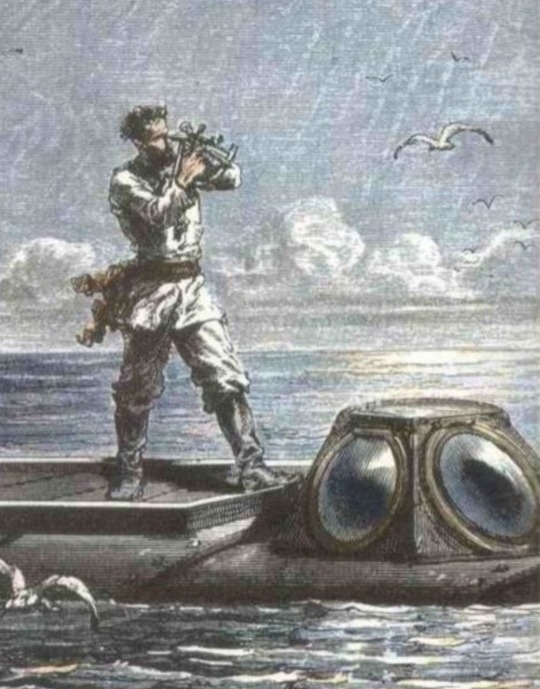
No antipropaganda on my polls please
Propaganda
I love her so much. She is the captain of all time. She’s trying her best to get her ship home (a nearly impossible task) she’s trying with all she has anyway. Also her in the white suit - Iconic
[The poll runner -hi !- has been informed that Nemo is so against propaganda he'd refuse to use any for his sake]
#tournament polls#battle of the captains#round 4#captain kathryn janeway#captain janeway#kathryn janeway#star trek janeway#star trek voyager#star trek#st voyager#st fandom#star trek fandom#star trek tag#captain nemo#20 000 leagues under the sea#20000 lieues sous les mers#20000 leagues under the sea#twenty thousand leagues under the sea#bookblr#classicsblr#jules verne#star trek captains
80 notes
·
View notes
Text
Only a few more hours!
Blorbuscon II – The Mysteries of Mesperyian is only a few short hours away, so here are a few last reminders and infos.
The conference will of course be held tomorrow (1.05.) at 9am PDT / 12pm EDT / 5pm BST.
The program and zoom link can be found here.
Presenters, please upload your presentations, handouts and anything else you might want to provide to the audience here.
Togas are welcome.
We look forward to seeing you all there and once again enjoying some amazing presentations together.
Until then, vale!
#blorbusconofficial#blorbuscon#mysteries of mesperyian#mesperyian#greek mythology#classicsblr#tagamemnon#classics#ancient greece
143 notes
·
View notes